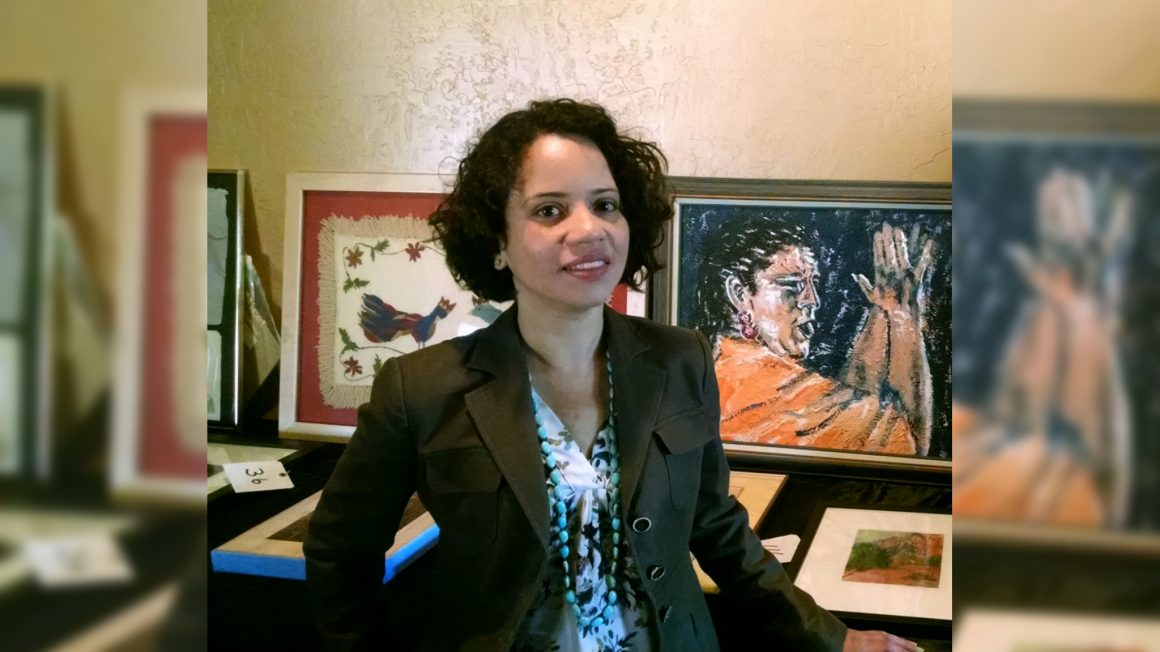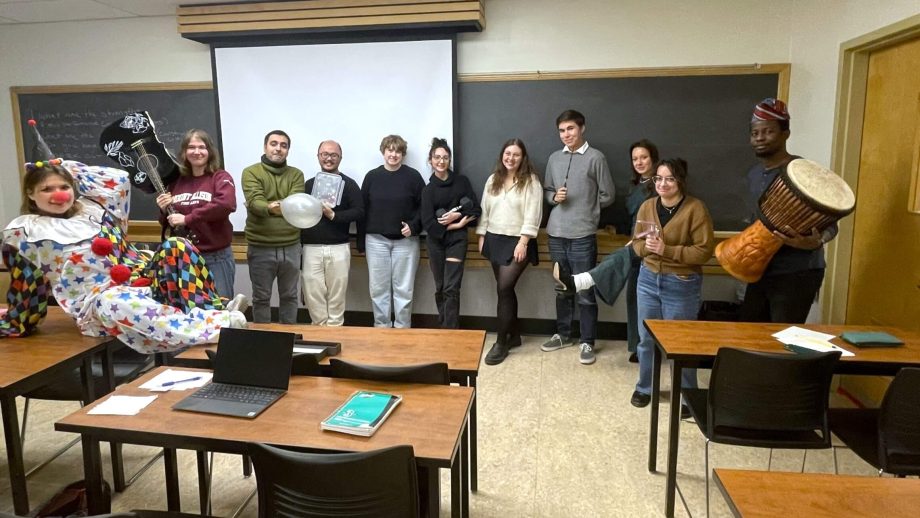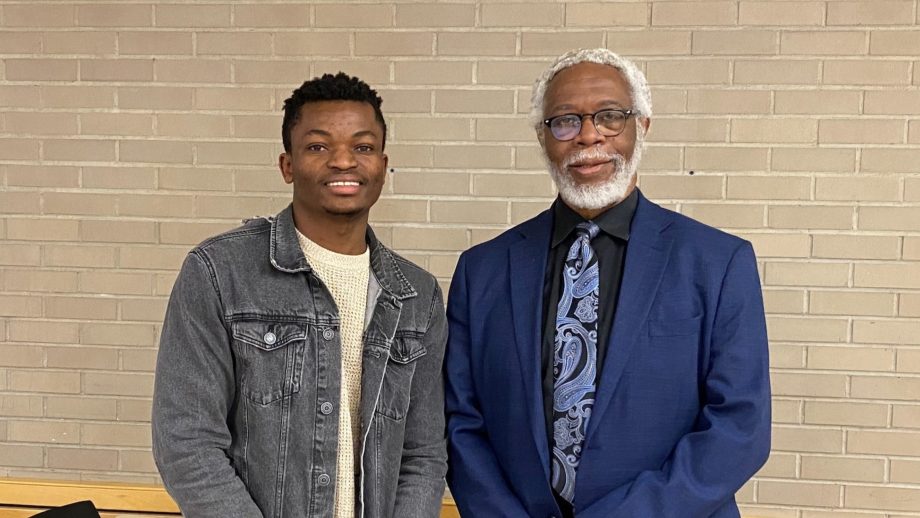UWinnipeg’s Drs Julie Nagam and Serena Keshavjee are part of a Mass Culture/Mobilisation culturelle (MC) project. They have been selected through the Mitacs Accelerate program, to examine the civic impacts of the arts in the lives of Canadians for the Research in Residence: Arts’ Civic Impact project.
They are part of a select few from six different post-secondary institutions to participate in the specific arts’ civic impact area of focus that include Indigenous cultural knowledge; climate and sustainability; health and wellbeing; and diversity and inclusion.
This will be a great opportunity to highlight the numerous arts institutions in the Prairies and to start a much larger conversation about current diversity and inclusion initiatives.
Audree Espada
Nagam is steering the direction and content of this MC project with Keshavjee and two graduate students who received Mitacs Accelerate program funding to participate. Audree Espada and Missy LeBlanc are completing a Master of Arts in Cultural Studies (Curatorial Practices) at UWinnipeg. Their team’s focus is on diversity and inclusion.
Espada and LeBlanc are carrying out an environmental scan on museums and galleries on the Prairies to better understand how these institutions are responding to the current cultural shifts, and how Black, Indigenous, and other people of color (BIPOC) are faring in the museum workplace.
Espada notes that this integrated learning has combined theory with practice, “This study feels like a fantastic capstone to my studies as I complete my MA. For this project, I combine the qualitative research skills I acquired in the field of anthropology with the critical theory of cultural studies. This will be a great opportunity to highlight the numerous arts institutions in the Prairies and to start a much larger conversation about current diversity and inclusion initiatives.”
Checking out the museums
Espada and Leblanc have been attending workshops on gathering data, on following ethics with the other students in the MC project from across the country, and then in the Fall they will branch out into the museum and gallery world to research, and then process the data they are collecting.
“The students will be gathering information on how museums are responding to the cultural shift that happening right now and this information will be used across Canada to better understand the impact of the arts, especially on BIPOC communities,” said Keshavjee. “This project gives these students an excellent foundation and training in both the academic and professional aspects of gallery and museum work, and I am thrilled to be working with Dr. Nagam and these talented MA students.”
This research and funding is in collaboration with the Canada Council for the Arts, the Culture Statistics Working Group (Federal-Provincial-Territorial Culture and Heritage Table), Ontario Trillium Foundation, and Toronto Arts Foundation.
The Research in Residence: Arts’ Civic Impact initiative will deepen the capacity of the Canadian arts sector to develop evidence-based approaches and build a future in which the arts sector in Canada can thrive.
Other institutions include McGill University, Emily Carr University’s Aboriginal Gathering Place, Dalhousie University, and Carleton University.
Mass Culture is a collaborative support organization that takes a community-based approach to providing diverse parties with the context and connections needed to enhance the equitable mobilization of arts and culture research.
About the students
Espada grew up Los Angeles, and understands the value of proper representation of diverse communities in the arts and humanities. After obtaining a Bachelor of Arts in Anthropology at the University of California – Santa Barbara, Espada worked as an archaeologist and museum professional in California, Colorado, and New Mexico. Espada draws upon her many years of field experience to highlight and uplift diverse voices in museum and gallery spaces.
LeBlanc is a Métis, nêhiyaw, and Polish. She is a curator, researcher, and writer based in Mohkinstsis/Calgary where she is currently the Curatorial Resident at TRUCK Contemporary Art. In 2019, she was the winner of the Middlebrook Prize for Young Canadian Curators and a runner-up for the Canadian Art Writing Prize.
LeBlanc holds a Bachelor of Arts from the University of Alberta, double majoring in the History of Art, Design, and Visual Culture and Sociology and a Diploma in Arts & Cultural Management from MacEwan University.
Her recent curatorial projects include Atautchikun | wâhkôtamowin (2021, forthcoming), Tina Guyani | Deer Road (2019) and Reverberate (2018). As the inaugural Emerging Curatorial Resident at TRUCK Contemporary Art, LeBlanc curated two exhibitions—Taskoch pipon kona kah nipa muskoseya, nepin pesim eti pimachihew | Like the winter snow kills the grass, the summer sun revives it and Mamanaw Pekiskwewina | Mother Tongues—organized a one day gathering, and wrote and designed a risograph publication centered on Indigenous language revitalization and epistemologies in November/December 2019. The project will now be going on tour across Canada throughout 2021.





